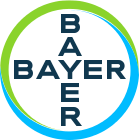Welcome to the nAMD Barometer Resource Zone!
On this page you will find a variety of useful materials, educational tools, and resources that can help both with your clinical practice and to optimize patient care.
Insights for Employers of People with Diabetic Macular Edema (DME): An Employer Information Pack
Do your patients with DME struggle to attend appointments because they cannot get time off work, as their employers do not fully understand the treatment requirements of DME? The Barometer Program has developed an Employer Information Pack dedicated to help employers understand and support their employees living with DME.
This pack consists of a doctor’s note and an accompanying pamphlet explaining the condition and the need for frequent eye appointments to improve employers’ understanding of the treatment requirements.
“This document is an excellent introduction to the general public, and especially employers and line managers, to the eye care needs and expectations of people with diabetes and DME. Regular treatments and follow-up examinations are required for vision preservation. This is quite demanding and some persons with diabetes may not even wish for their employer to know of their challenges because of fear or perceived lack of support. This document can help change all that! I fully recommend this document to all employers and workplace managers.”
Associate Professor Winfried Amoaku (University of Nottingham, UK)
Share the Employer Information Pack with your patients: download the pamphlet and doctor’s note by clicking on the thumbnails
Rapid Mental Health Screening Tool
Do you want to make sure you are doing the most to identify and support patients in your practice who are potentially at risk of anxiety and depression? Developed and validated by Barometer Program member Professor Tariq Aslam (University of Manchester, UK) with multidisciplinary input from university and hospital colleagues in ophthalmology and psychology, this Rapid Mental Health Screening Tool effectively identifies patients with retinal disease who are at risk of both anxiety and depression, and can help to facilitate prompt management of these conditions.
This tool consists of:
- A simple patient well-being form used to screen for possible depression or anxiety
- A full depression and anxiety questionnaire to be completed if the possibility of depression or anxiety is revealed
- A tiered proforma algorithm guiding the next steps that clinicians should take
Template letters for referral, if needed
"Clinicians are increasingly aware of the importance of patient well-being when treating patients with chronic eye diseases and multiple publications have highlighted unacceptable levels of anxiety and depression in our patients. Managing this as well as the patient’s eye disease can be a challenge given already busy clinics and limited access to trained psychological support. This tool provides a template for an efficient and effective means of managing patient well-being, using simple questionnaires and guides that are compatible with use in busy ophthalmology units.”
Professor Tariq Aslam (University of Manchester, UK)
Download the Rapid Mental Health Screening Tool, including the screening form and proforma, and the depression and anxiety questionnaires in English from these links.
Rapid Metal Health Screening Tool overview
Patient well-being form
Patient Health Questionnaire (PHQ-9) and Generalized Anxiety Disorder (GAD-7): Actions to take based on score results
Referral letter templates
General Anxiety Disorder Questionnaire (GAD-7) and Patient Health Questionnaire (PHQ-9): https://www.phqscreeners.com/
This tool was developed by Professor Tariq Aslam, University of Manchester, with multidisciplinary input from University and Hospital colleagues in ophthalmology and psychology. The tool is licensed under CC BY-SA 4.0. The original depression and anxiety questionnaires can be accessed and downloaded without copyright restriction here: https://www.phqscreeners.com/. Bayer was not involved in the development of, or funding for, the rapid mental health screening tool or associated materials. The links to the tool and questionnaires are provided as a convenience. In providing these links, Bayer does not give approval to their contents, nor does Bayer accept any liability for damage or injury resulting from the use of the tool, in whatever form. Users access and use the tool at their own risk.
1Depression and anxiety are more prevalent among patients with nAMD compared with the general population, and approximately 90% of patients with symptoms of clinical anxiety and depression are not receiving appropriate psychological and psychiatric treatment for these conditions. Senra H et al. Am J Ophthalmol. 2017; 177: 213–224.
Communication Strategies to Improve Adherence in Neovascular Age-Related Macular Degeneration (nAMD) Treatment: A Discussion Guide for Ophthalmologists to Improve Patient Engagement
Are you concerned about your patients’ risk of non-adherence to treatment for nAMD, and do you find it hard to identify and engage in conversation with patients about their potential challenges? This guide, developed by the Barometer Program, is dedicated to facilitating conversations with patients identified as being at risk for non-adherence and highlights critical aspects to encourage proactive engagement with patients to address their concerns.
An accompanying abbreviated version of the guide, consisting of a 1-page overview of proposed discussion questions, has been developed for everyday use in busy clinics.
"I believe that this guide will be an important tool to reveal risk factors related to non-adherence and non-persistence and I look forward to introducing this guide in my clinic.”
Professor Mehmet Numan Alp (World Eye Hospital, Turkey)
Download the full discussion guide and 1-page summary below to support conversations with your patients:
Download the full Discussion Guide by clicking on the thumbnail
Download the 1-page discussion questions by clicking on the thumbnail
An Essential Guide to Wet AMD: Patient Information Materials
Would you like to provide your patients with comprehensive, informational material about nAMD and what to expect over time with treatment? The Barometer have compiled a list of suggested questions they wished their patients would ask and corresponding answers to address these important questions, spanning multiple timepoints in the nAMD treatment journey. These patient information materials serve as a central repository of information to ensure that consistent, accurate, and timely information is provided to patients.
“These patient information materials are a valuable resource to ensure that patients with nAMD have access to consistent, concise, and relevant information that they can easily digest at diagnosis and treatment initiation, completion of the loading phase, and over the long term. This directly addresses findings of the Barometer Global Survey, where it became clear that patients could be better supported during their treatment journey through the provision of information about their condition and what to expect with treatment over time.”
Professor Richard Gale (University of York, UK)
Share these Patient Information Materials with your patients by downloading the material for each time point in their journey here:
Download part 1: "What should I know following my diagnosis" by clicking on the thumbnail
Download part 2: "What should I know when I start treatment for wet AMD?" by clicking on the thumbnail
Download part 3: "What should I know after starting treatment for wet AMD?" by clicking on the thumbnail
Download part 4: "How is wet AMD treater over time?" by clicking on the thumbnail
Download part 5: "What does long-term management of wet AMD mean?" by clicking on the thumbnail
The Barometer Leadership Coalition have also compiled all these chapters into a single document.
Download the comprehensive Wet AMD Patient Education Booklet by clicking on the thumbnail
‘A Chat with Anat’
In these podcasts, the Co-Chair of the Barometer Leadership Coalition (LC) and host, Professor Anat Loewenstein, is joined by internationally renowned colleagues from the LC and Vision Academy to discuss patient-focused topics covering clinical challenges in ophthalmology and controversies in care.
Follow on Spotify and Apple Podcasts to listen to more than 20 episodes highlighting topics such as reducing the burden of bilateral injections, monitoring the fellow eye in nAMD, and recent technologies to revolutionize holistic patient care.






